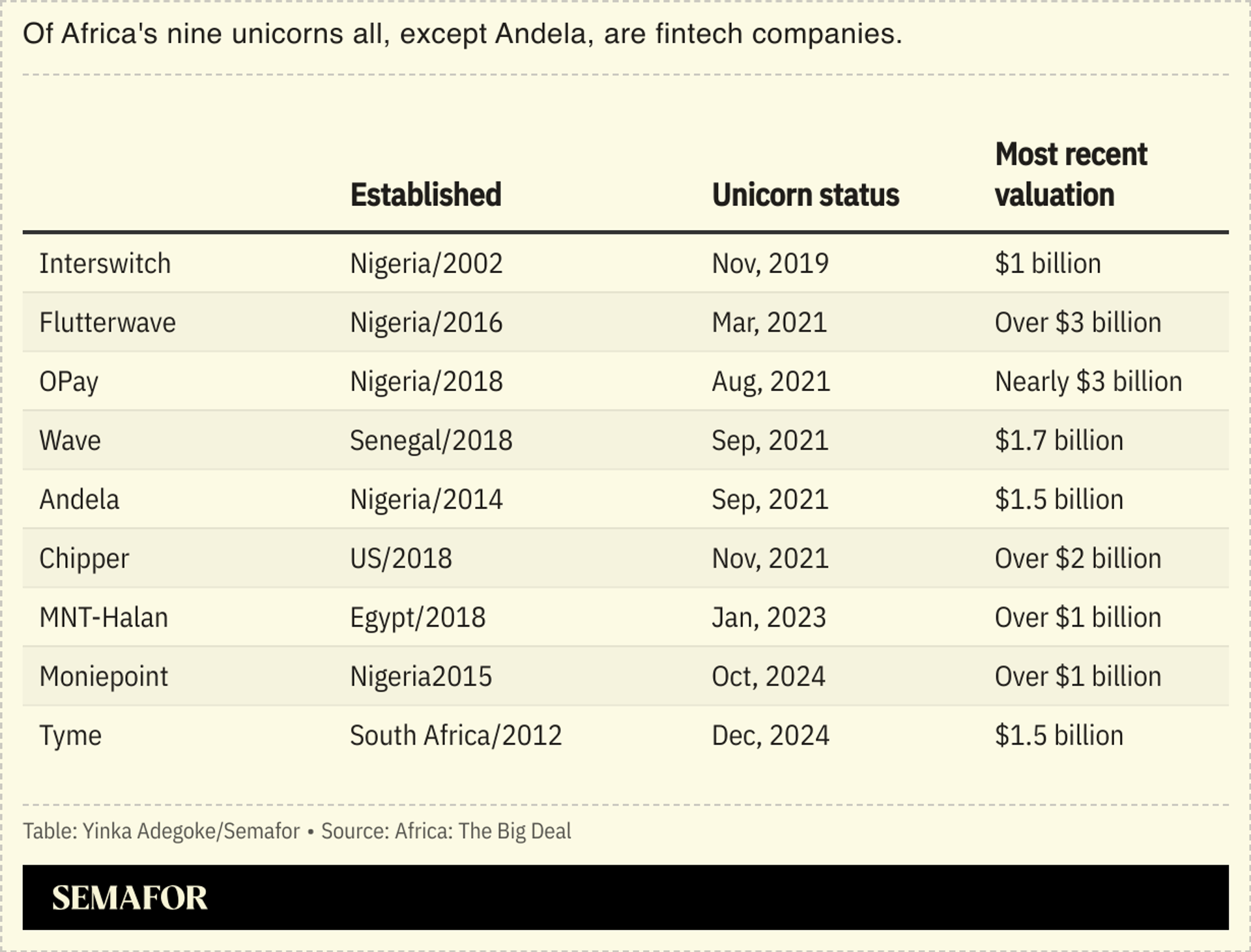The Scene
This year has been tough for African tech startups trying to raise funding — the global venture slowdown has hit the continent’s hubs hard.
It’s been hard for local venture capital funds raising money to develop the pipeline of the next promising entrepreneurs, but it’s been even worse for those entrepreneurs.
Africa: The Big Deal, which collates startup data, estimates that funding for 2024 will come in around $2.2 billion, which is down some 25% from last year.
And yet the fourth quarter has given us two new African unicorns — privately funded companies valued at more than a billion dollars. Seven weeks ago, Nigeria’s Moniepoint announced it had raised $110 million in a Series C round, at a valuation “over $1 billion,” and this week South Africa’s Tyme (parent of TymeBank) revealed it had raised $250 million in a Series D round at a $1.5 billion valuation.
In this article:
Know More

Yinka’s view
The fundamental question is simple: Do unicorns really matter for the wider African startup ecosystem?
Lofty valuations don’t necessarily mean a young company is executing at the highest levels. A startup’s valuation can be as much about timing as it is the quality of the idea or abilities of the management team. For example, if you had tried to raise venture investment for your artificial intelligence startup in Silicon Valley 10 years ago, you probably would not have done as well on valuation as a similar startup now.
But Zecharias Amsalu, founder of Africa Fintech Summit and an angel investor, argues that developing African unicorns really matters beyond the bragging rights or vanity of the nine unicorns the continent has so far. African unicorns are “symbolic of the ‘investiability’ of the continent,” he says, pointing out they have achieved these remarkable valuations in spite of economic challenges seen in some of the biggest African markets. “Unicorns help catalyze future investment.”
Aaron Fu, a seasoned venture investor in Africa, also thinks unicorns are important for proving the viability of the continent’s tech hubs and attracting more capital. But he looks to the example of the Latin American markets for a more regular output of tech businesses valued in the $200 million to $300 million range, which he says “would be awesome for Africa and investors like me.”
Ultimately, the bigger question for many investors will be when some of these companies will be able to return a profit on their investments. Flutterwave, a fintech company, has hinted strongly that it is getting set for an IPO. And there has been talk for a few years about Interswitch, a payments processing company, going public. Other than that, it is a wait and see as the management teams focus on building their businesses and the market.
Room for Disagreement
Iyin ‘E’ Aboyeji, founder of investor firm Future Africa, is best known for helping to start two of Africa’s best known billion-dollar venture backed companies: Andela, a marketplace for digital talent, and Flutterwave. But he’s skeptical as to the importance of unicorns in the grand scheme of things.
“We’ve already proven Africans can build valuable billion dollar companies at scale,” he says. “The mission now is to prove we can build global technology companies that can consistently generate billions of dollars of profits at scale.”
